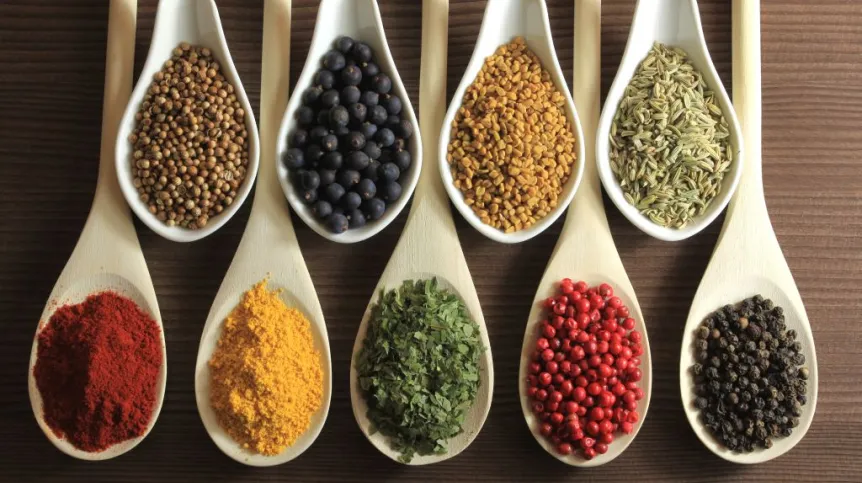
Poorly purified spices, such as sweet paprika or pepper, may contain large amounts of microorganisms, including pathogens like salmonella. They not only pose danger to health, but also spoil cheese and cold cuts, to which they is added. Researchers have developed a new method of treatment of spices using plasma.
The spices exported from tropical countries may contain large amounts of aerobic bacteria, spores of anaerobic and aerobic bacteria, as well as various microorganisms, such as salmonella. That is why - before they appear on store shelves packed in bags and in various food products - they have to be purified. "These date are not available for Poland, but we know that in 2010 more than 600 million kilograms of spices requiring treatment were imported into the United States" - told PAP Maciej Grabowski of West Pomeranian University of Technology in Szczecin.
If there are to many bacteria in poorly purified products, they can contribute not only to poisoning, but also accelerate the spoilage of food, to which the spices are added. "This is especially true where such spices are added to maturing sausages or cheeses" - he described.
Currently, spices are usually subjected to bactericidal action of steam. This method is especially popular in India. "Steam indeed kills bacteria, but the spices absorb very large amounts of water, thereby increasing in weight. This also leads to the loss of essential oils and spices can lose their flavour. They must be dried, and as a result the entire process becomes quite expensive" - explained the researcher. Another common method is radiation sterilization. While it is safe for humans and effectively destroys bacteria, in many societies its use raises concerns and controversy.
Therefore, the team of West Pomeranian University of Technology in Szczecin has developed its own, new method of treatment of spices. For now, they conducted a study on the ground black pepper and sweet paprika. "We selected these spices, because - according to US data - these spices are most commonly imported to the United States" - he explained.
The method developed by the researchers from Szczecin involves sterilization of spices using plasma. "In short, this method involves ionising gas using a high voltage under the influence of, for example, high-frequency electromagnetic field, which generates plasma that has the form of, for example, violet light. We expose spices to this particular light" - explained Grabowski.
The method is already used in the medical industry, also in Poland, to sterilize surgical instruments. It\'s only a matter of time when it is introduced in the food industry. "We have already tested for the content of piperine, which is the chemical compound that gives pepper owes its spicy flavour. It turned out that after our treatment it remains unchanged, its concentration may even increase. We also used specialized device to analyse the colour. We have not found any differences" - said the researcher. "We already know that our method works: the bacteria are killed, and spices do not change. Now we would like to slowly move towards a continuous purification process, be able to purify large quantities of spices in the shortest possible time" - he added.
Chances are high because when scientists began work, sample of spice was only 0.35 grams, and the plasma sterilization process took 60 minutes and not always with satisfactory results. Now sterilization of 40 grams of spices takes just two minutes.
One of the American companies that make hamburgers is already interested in the new method. "But for now we are waiting for someone who would decide to cooperate in a consortium" - said Grabowski.
PAP - Science and Scholarship in Poland, Ewelina Krajczyńska
ekr/ agt/ mrt/
tr. RL













